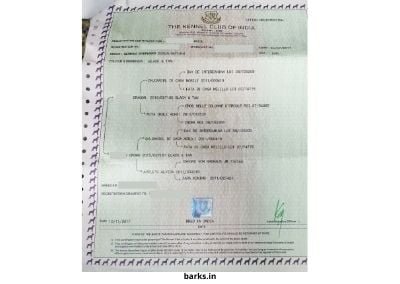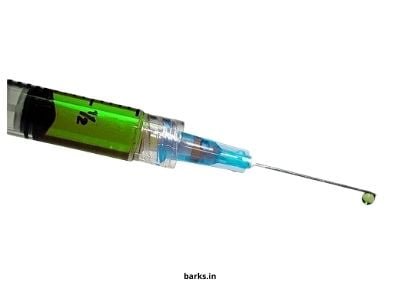Questions you must ask your breeder before buying his puppy

Buying a puppy for your home is an exciting journey. You start with your initial decision of choosing a dog breed, which is then followed by frantically looking at classified ads to find a breeder.
Most first-time dog buyers don’t realize that finding the right puppy for your home is fraught with pitfalls. It is not as simple as walking into a pet store and walking out with a cute puppy. Never buy your puppy without an exhaustive “background check.”
What do we mean by a background check?
A background check is a vital step in your dog buying journey that helps you to verify facts and be alert for warning signs. Buying a puppy from a puppy mill or a bad dog breeder can have disastrous consequences for your family.
Verifying facts, thankfully, is not very hard. A little research online and a series of questions should help you understand all you need to know about the dog breeder.
Why is it important to verify facts about the dog breeder?
The dog breeder plays a vital role in determining the future life of your potential puppy. A good breeder will take the utmost care in choosing the right breeding pair. He will look for parent dogs with the best pedigree, right temperament, and conformance to breed standards. Buying your puppy from a reputable breeder will ensure worry-free dog ownership.
On the other hand, an unscrupulous breeder is only after profit. He does not care about his dogs’ welfare, nor does he care about his litter’s health or temperament. Buying from a bad breeder will result in a challenging dog ownership experience. Your puppy could be sick, have an aggressive temperament, and other health issues that might show up even as it grows.
Here are some questions to ask the breeder before you buy his puppy?

We at barks.in want to help first-time dog buyers choose the right puppy for their homes. Use our questionnaire and evaluate the breeder’s answers. Shortlist a few breeders in your locality and visit them in person. A good breeder has nothing to hide and should answer your questions truthfully.
Are the puppy’s parents registered with a Kennel Club?

Check if the parent dogs have their pedigree registered with a Kennel Club. Reputable breeders are knowledgeable and will know the pedigree of their dogs.
Puppy mills, on the other hand, don’t generally register their dogs. Pedigree registrations also have the name of the breeder on them. Request the breeder to present the original certificate. Please stay away from breeders who are not forthcoming about their dog’s pedigree.
Ask about the health history of the parent dogs?
Ask the breeder about the veterinary history of his dogs. Dog breeds like the German Shepherd, Pug, and Husky are prone to several health issues such as hip dysplasia. If you plan on getting a dog breed, learn about its health. Talk to the breeder about his dog’s medical history. Good breeders will have in-depth knowledge about their dog’s health and will be able to give you useful tips about their breed.
Ask to meet the parent dogs?
If possible, ask the breeder to let you meet the parent dogs. You should at least meet the mother dog along with the puppy. When you meet the puppy along with its mother, please pay attention to the following.
- Look at the environment. Is it clean? Is it fit for a dog?
- Is the puppy’s mother healthy and active?
- Is the mother dog young and fit?
- Is the puppy active and playful?
- Do the parent dogs conform to their breed standards (purebred dog)?
- Check coat color, height, and general appearance.
Ask about veterinarian visits for the puppy?

A responsible breeder gets his puppies checked out by a vet before he sells them. Ask the breeder about his puppy’s general health. Too many or too few veterinarian visits might indicate health issues.
Ask about the pedigree of the parent dogs?
A good breeder will have excellent knowledge about the pedigree of his dogs. Breeders spend a lot of time, effort, and money selecting their breeding pair and don’t get their dogs in haste. By discussing his dogs’ pedigree, you can get a clear picture of the breeders and his dogs.
On the other hand, puppy mills and backyard breeders will not have the same passion and knowledge as a reputable breeder.
How long are you a breeder, and can you tell me about this breed?
If you plan on getting a purebred puppy, it is a good idea to talk to the breeder about the breed. A responsible breeder will be a master. He will know everything about the breed, its temperament, breed standards, the right dog food, health, etc. Remember, to validate the facts; you must first do your research. Never buy your puppy from a breeder or pet shop owner who doesn’t know about the breed.
What is the temperament of the puppy?
Puppies from the same litter can be very different from one another. Talk to your breeder about your puppy. If you are looking for a guard dog (Rottweiler or GSD), look for a puppy that is not easily intimidated and is bold. Puppies with a clam character make excellent companions. We don’t recommend shy or nervous puppies as it can indicate abuse or other issues.
One way to check the temperament for yourself is to roll over the puppy gently on its back with legs up in the air. Puppies that bite and resist lying on their backs are suitable for guarding and will be high-energy dogs when they grow up. If the puppy is calm, then it will grow up to be a calm dog.
Labrador Retriever puppies and Golden Retriever puppies are generally calm and make excellent companion dogs. Pitbulls, Dobermanns, and Huskies, on the other hand, will resist lying on their backs and make excellent guard dogs.
Are the puppies vaccinated?

Puppies need vaccination. Like humans, puppy shots are vital for the health of your puppy. Check with your breeder on the vaccinations completed and ask for the vaccination card. Based on their age, all puppies need shots. Reputable breeders vaccinate their puppies and follow the vaccination schedule religiously. Avoid breeders who don’t vaccinate their litter.
Is the puppy de-wormed?
Good breeders de-worm their litter. De-worming helps puppies to retain nutrition better.
Is the puppy socialized?
If you are after large or aggressive dog breeds, ask your breeder about puppy training and socialization. Breeders don’t generally socialize small dog breeds and non-aggressive breeds.
Look for “soft-signals”
Everyone sends out “soft-signals.” If you know what to look for, it is easy to identify good breeders from bad ones. Here are a few soft signals that you can checkout.
- Most good breeders will be finicky about people handling their puppies. Since puppies can contract diseases, good breeders don’t allow buyers to handle their puppies.
- Good breeders also talk (evaluate) to buyers before deciding to sell. Unlike pet shops where you can walk-in and walk out with a puppy, reputable breeders will not sell their puppies to everyone.
- Good breeders match puppies to buyers. Most breeders will not show a buyer the entire litter. They make the match based on the buyer’s experience and the puppy’s temperament.
- Responsible breeders will not negotiate the price. Also, expect to pay a premium for his puppies.
Final thoughts: Questions to ask your puppy breeder

Buying a puppy is a beautiful and crucial process. As a buyer, you must be patient and wait for the right buyer. Never make the mistake of walking into a pet store and walking out with a puppy. Also, never buy a pet based on impulse.
Remember, it is more important to find the right breeder than to find the right puppy. Good breeders will not only give you a beautiful and healthy puppy but also will guide you.

